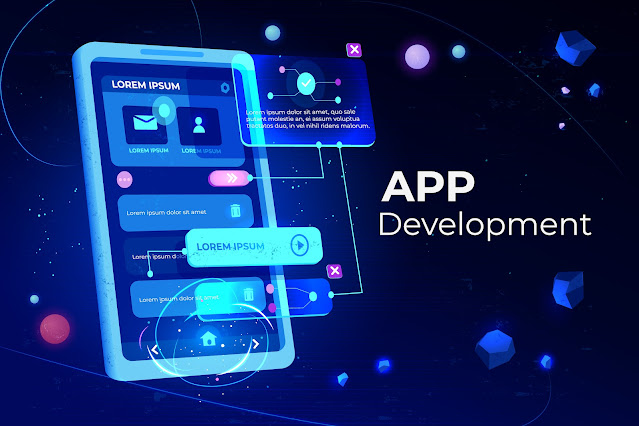Top Trends in Custom Android App Development
In today's fast-paced digital world, the significance of Android app development cannot be overstated when it comes to fostering business growth and enhancing customer engagement. Given the extensive usage of Android devices worldwide, the creation of tailored apps that meet user needs and provide a seamless user experience has emerged as a paramount objective for enterprises.
To stay ahead in the competition, partnering with a reliable custom android app development company is crucial and also keeping abreast of the latest trends in custom Android app development is of utmost importance.
Top 7 Custom Android App Development
1. The Rise of Kotlin as the Preferred Language:
In recent years, Kotlin has witnessed a remarkable surge in popularity among Android developers. This modern programming language provides developers with enhanced syntax, conciseness, and safety features compared to Java.
The official endorsement of Kotlin by Google as the preferred language for Android app development has led to a widespread adoption by developers. Kotlin's seamless interoperability with Java and its ability to harness existing Java libraries make it an excellent choice for building robust and feature-rich Android applications.
2. Instant Apps Redefining User Experience:
Instant apps have emerged as a game-changer in delivering an enhanced user experience. These lightweight versions of mobile apps allow users to instantly access specific app functionalities without the need for a complete installation.
By eliminating the requirement to install multiple apps on their devices, instant apps provide a seamless and frictionless user experience. This not only saves storage space but also contributes to improved user retention rates, revolutionizing the way users engage with mobile applications.
3. Harnessing the Power of IoT:
The Internet of Things (IoT) has brought about a paradigm shift in how we interact with technology. Android app developers are increasingly integrating IoT capabilities into their custom apps, creating smart and interconnected ecosystems.
This integration empowers users to control a wide range of smart devices directly from their Android apps, enabling automation and remote management. From controlling home appliances to tracking fitness data from wearables and managing industrial processes, Android apps with IoT integration offer limitless possibilities.
4. Immersive Experiences with AR and VR:
Augmented Reality (AR) and Virtual Reality (VR) technologies have gained significant traction and are now seamlessly integrated into Android apps. Developers leverage the power of AR and VR to create immersive and captivating experiences across diverse industries such as gaming, e-commerce, education, and real estate.
Whether it's providing virtual property tours or delivering interactive gaming adventures, AR and VR technologies enhance user engagement and provide businesses with unique opportunities to stand out in the market.
5. Unleashing the Potential of Machine Learning and Artificial Intelligence:
Machine Learning (ML) and Artificial Intelligence (AI) are reshaping the way users interact with apps and devices. Android app developers are harnessing the capabilities of ML and AI algorithms to craft intelligent and personalized experiences.
By understanding user behavior, preferences, and needs, Android apps powered by ML and AI algorithms deliver personalized recommendations, efficient search algorithms, and improved user engagement. From recommendation engines to predictive analytics, the potential for ML and AI in Android apps is vast.
6. Fortified App Security:
In an era plagued by cyber threats and data breaches, app security has become a top priority for businesses and users alike. Android app developers are diligently implementing robust security measures to safeguard user data and ensure secure communication between the app and server.
This involves integrating encryption techniques, secure authentication mechanisms, and adopting best practices for data storage and handling. By prioritizing app security, developers aim to instill trust and protect user information.
7. Embracing Cloud-Based Mobile Apps:
Cloud computing has revolutionized the app development and deployment landscape. Android app developers are embracing cloud technologies to build scalable and flexible applications capable of adapting to evolving user demands.
Cloud-based Android apps offer numerous advantages, including reduced device storage requirements, real-time data synchronization, and seamless integration with other cloud services. Moreover, these apps allow businesses to deliver updates and new features without requiring users to manually update their apps, streamlining the user experience.
Conclusion
Keeping up with the latest trends in custom Android app development is essential for businesses seeking growth and success in the mobile app market. By leveraging advancements such as Kotlin programming, instant apps, IoT integration, AR/VR experiences, ML/AI capabilities, enhanced app security, and cloud-based solutions, businesses can create innovative and user-centric Android apps.
To fully capitalize on these trends and their benefits, partnering with a reliable and experienced mobile app development company is crucial. A reputable development company can provide the expertise and guidance needed to navigate the ever-evolving landscape of Android app development, ensuring the creation of high-quality and impactful mobile applications that meet the unique needs of businesses and their target audiences.
Read Also:
Unique Mobile App Ideas for Startups




Comments
Post a Comment